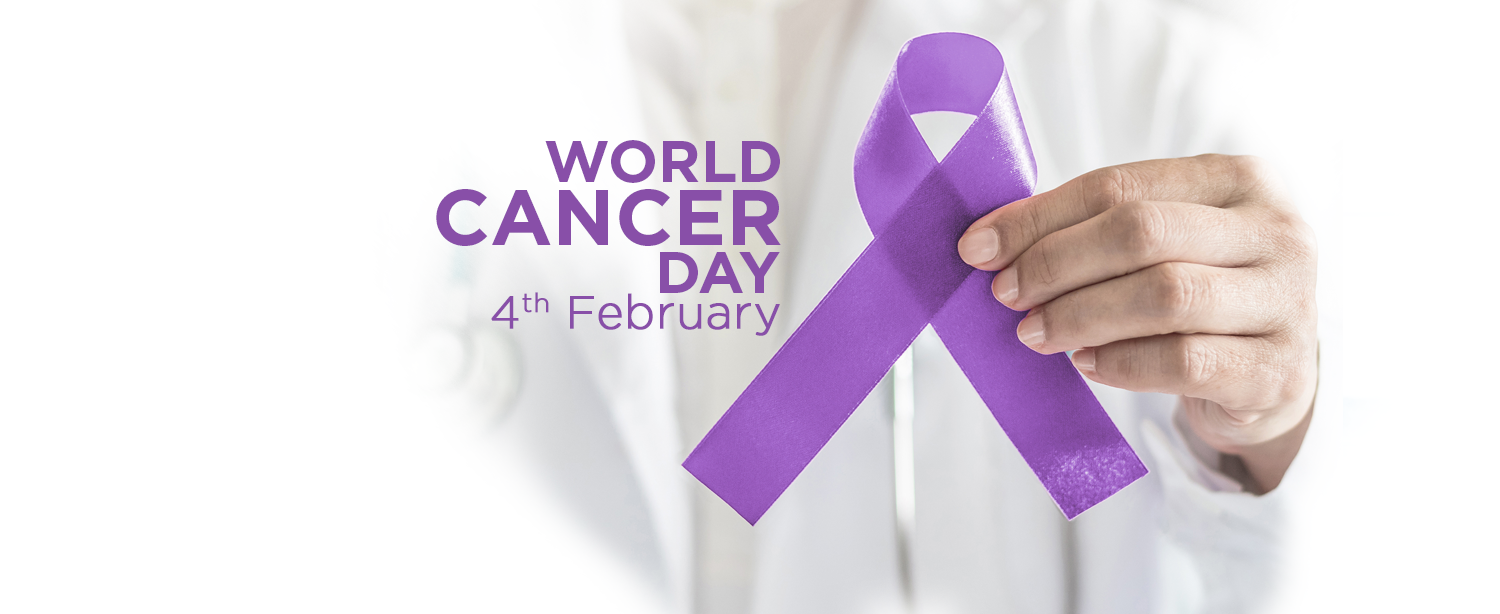Cancer refers to any one of a large number of diseases characterized by the development of abnormal cells that divide uncontrollably and have the ability to infiltrate and destroy normal body tissue. Cancer often has the ability to spread throughout your body.
Cancer is the second-leading cause of death in the world. But survival rates are improving for many types of cancer, due to improvements in cancer screening and cancer treatment.
Cancer Symptoms:
Cancer can cause many different symptoms. These are some of them:
- Skin changes, such as:
- A new mole or a change in an existing mole.
- A sore that does not heal.
- Breast changes, such as:
- Change in size or shape of the breast or nipple.
- Change in the texture of breast skin.
- A thickening or lump on or under the skin.
- Hoarseness or a cough that does not go away.
- Changes in bowel habits.
- Difficult or painful urination.
- Problems with eating, such as:
- Discomfort after eating, a hard time swallowing, changes in appetite
- Weight gain or loss with no known reason.
- Abdominal pain.
- Unexplained night sweats.
- Unusual bleeding or discharge, including:
- Blood in the urine, vaginal bleeding, blood in the stool
- Feeling weak or very tired
What causes Cancer?
Cancer is caused by changes (mutations) to the DNA within cells. The DNA inside a cell is packaged into a large number of individual genes, each of which contains a set of instructions telling the cell what functions to perform, as well as how to grow and divide. Errors in the instructions can cause the cell to stop its normal function and may allow a cell to become cancerous.
Risk factors:
Here is a list some common risk factor which highly increases your chance of getting cancer:
- Smoking – Cigarette smoke contains hundreds of toxic chemicals. Of those chemicals, about 70 can cause cancer. Smoking as well as being exposed to second-hand smoke increases your risk of cancer.
- Obesity – Extra fat tissue produces excess amounts of estrogen and other hormones that may stimulate cell growth and proliferation (the more often cells divide, the more opportunities cancer has to develop). Obesity may also cause chronic inflammation, which over time can damage DNA and is one of the things that cause cancer.
- Age – One-quarter of new cancer cases are diagnosed in people between age 65 and 74, according to the National Cancer Institute. Getting old highly increases your chance of getting cancer.
- Sedentary lifestyle – Spending more time sitting for work or leisure highly increases your chance of getting cancer as compared to others who lead active lives.
- Alcohol – Limit your alcohol intake. One unit for women, two for men: that’s the recommended daily limit if you choose to drink alcohol. The more alcohol you consume, the higher your risk of developing certain cancers: specifically that of the head and neck, oesophagus, liver, and breast.
- Hereditary – If your mother, father, or siblings were diagnosed with any form of cancer than it’s a sign that it may be caused by an abnormal gene that you may have inherited. Overall, inherited mutations result in only about 5 to 10 per cent of all cancers.
Prevent Cancer:
Here are a few ways how changing your lifestyle and eating habits can help prevent cancer:
- Be as lean as possible without becoming underweight.
- Be physically active for at least 30 minutes every day.
- Avoid sugary drinks, and limit consumption of high-calorie foods, especially those low in fiber and rich in fat or added sugar.
- Eat more of a variety of vegetables, fruits, whole grains, and legumes (such as beans).
- Limit consumption of red meats (including beef, pork, and lamb) and avoid processed meats.
- If you drink alcohol, limit your daily intake to two drinks for men and one drink for women.
- Limit consumption of salty foods and food processed with salt (sodium).
- It’s best for mothers to exclusively breastfeed their babies for up to six months and then add other liquids and foods.
- After treatment, cancer survivors should follow the recommendations for cancer prevention.
Cancer facts in India:
- There are more than 100 types of cancers; almost any part of the body can be affected.
- The five most frequent cancers (ranking defined by the total number of cases) in India between men and women are breast, cervical, oral cavity, lung, and colorectal. These top five account for 47.2 per cent of all cancers
- Cancer is the second most common cause of death in India (after cardiovascular disease).
- Use of tobacco products (eg smoking cigarettes) is the single most preventable cause of death worldwide. As many as 2,500 persons die every day due to tobacco-related diseases in India.
- One woman dies every 8 minutes in India from cervical cancer, which is more than any country. Rural women have more risk than their urban counterparts.
- Breast cancer is the most common cancer in women in India and accounts for about a quarter of all cancers in women in Indian cities.
- The WHO data says India will have 1.16 million new cancer cases in 2018.
Our Cancer centre is equipped with high-end technologies like:
- EDGE Radiosurgery system, Asia’s first equipment which enables precise, non-invasive treatments helping patients heal faster with less discomfort.
- We are the first hospital in India to have Novalis TX machine, which performs high precision surgeries to remove deep-seated tumours.
- We have the first Trilogy (linear accelerator) in India, which is capable of performing on-board CT scan, KV and MV imaging with respiratory gating systems.
Consult our highly experienced and expert oncologists for any cancer diagnosis or treatment. Please find below link for more details:
https://www.kokilabenhospital.com/departments/centresofexcellence/centrefor_cancer.html


